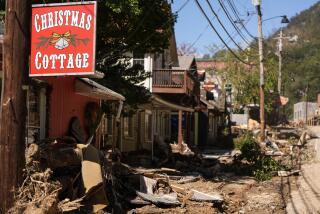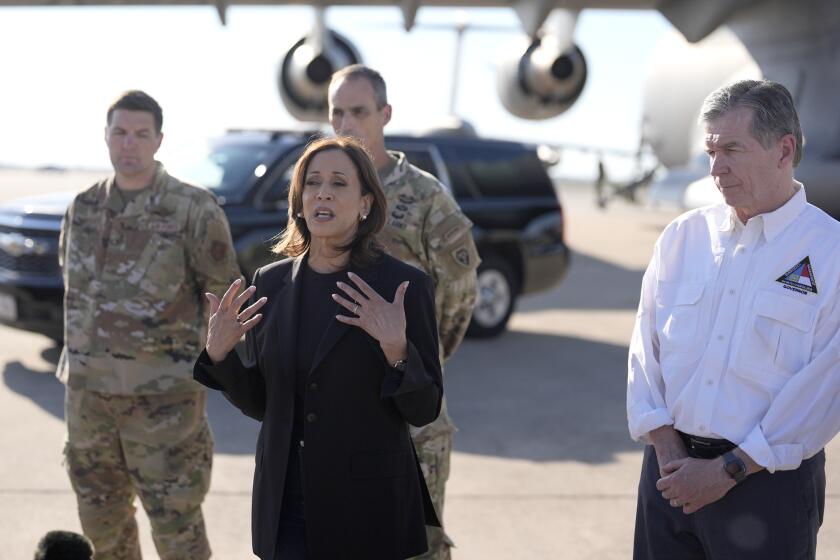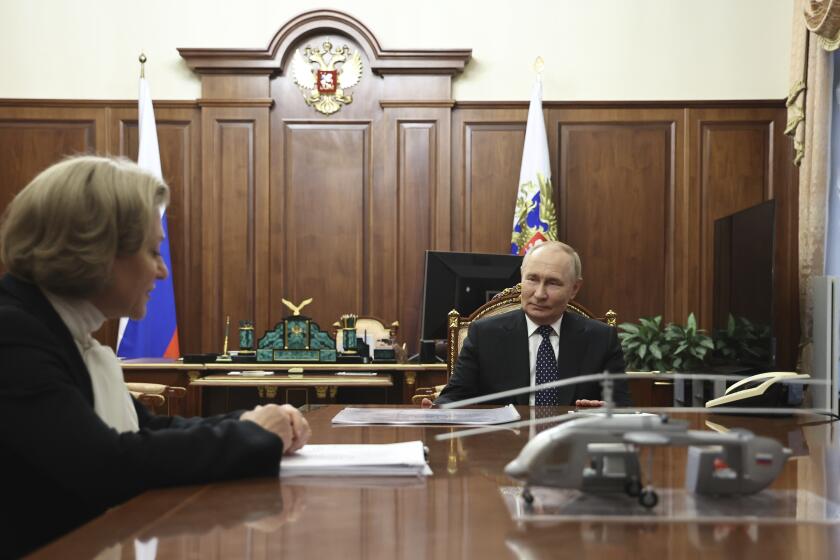Cease-Fire Continues to Hold in Croatia : Yugoslavia: Both sides are supposed to remove blockades by Saturday, but questions remain.
A cease-fire accord silenced the guns of Yugoslavia’s bloody civil war Wednesday, but federal army and Croatian officials immediately focused on the agreement’s loopholes, and neither made any moves to shore up the latest effort to impose peace.
Both sides have until Saturday to clear their blockades, which should allow free movement of transport and people throughout the Croatian republic, the scene of escalating conflict for three months.
Although the day of relative calm held out fresh hopes of ending the clashes, neither the Serbian-commanded army nor Croatian national guardsmen appeared ready to step back first.
State-run Croatian media reported continued mortar fire in the city of Osijek in eastern Croatia as well as sporadic gunfire in nearby Vukovar and Vinkovci. But hostilities have slackened noticeably since reaching a climax Monday with the rocket attack on Zagreb’s presidential palace.
Croatian Radio indicated early in the day that republic forces surrounding a federal army base near Zagreb would begin withdrawing to allow the federal troops and tanks trapped inside to depart. But the Croatian national guardsmen, fearful that the freed hardware would be used against them, still surrounded the Borongaj barracks at sunset.
A six-point truce hammered out by European Community monitors and the Yugoslav combatants late Tuesday failed to specify whether the Yugoslav People’s Army must withdraw from Croatia once the bases are freed.
Zagreb officials insist that a federal pullout from their republic is an implied condition for Croatia to end its military blockade.
The federal army’s deputy commander of the 5th Military District, which encompasses Croatia and neighboring Slovenia, noted that the accord did not specify such a condition.
“For now, we are talking about a partial withdrawal,” Gen. Andrija Raseta said from his sandbagged and barricaded Zagreb headquarters. Whether the troops actually leave Croatia “depends on the final resolution of the Yugoslav crisis.”
Asked if the federal forces have begun lifting their land and naval blockades, Raseta said there hadn’t been sufficient time to relay word of the agreement to all forces patrolling the Adriatic seacoast.
“The part that remains unclear is what kind of control will be possible to prevent arms shipments from coming in,” Raseta added, expressing concern over potential weapons imports.
Croatia and Slovenia, which declared independence on June 25, see the continued presence of federal troops on their territories as an aggressive attempt at occupation. The army views Croatia’s secession as an assault on the federation that it was charged to protect.
Federal ground units and armed Serbian rebels have seized nearly half of Croatia’s territory. They have also taken positions along the coastal highway to pressure the republic’s forces into ending their barracks blockades.
Raseta said those units will no longer hinder traffic. But he added that they will not necessarily withdraw, and he reserved the right for the army to ensure that no Croatian reinforcements are brought to the coast.
“For the moment, we will let normal transportation on the highway be re-established,” the general said. “But the basic task is going to be to check whether new or fresh troops are being brought in.”
Federal officers are expected to comply with an Oct. 18 deadline for pulling out the last 3,000 or so troops from Slovenia, but they have made it clear that they will fight Croatia’s secession.
Raseta argued that the army’s attack on the historic walled city of Dubrovnik was necessary because Croatian reservists posed a threat to the vital naval port of Kotor Bay in neighboring Montenegro.
European Community diplomats shepherded the latest truce through in 10 hours of talks, ending just before midnight Tuesday. Besides halting the armed standoff around federal military bases, the combatants must restore vital services to besieged cities in eastern Croatia and take part in EC-mediated talks that begin today.
More to Read
Sign up for Essential California
The most important California stories and recommendations in your inbox every morning.
You may occasionally receive promotional content from the Los Angeles Times.











